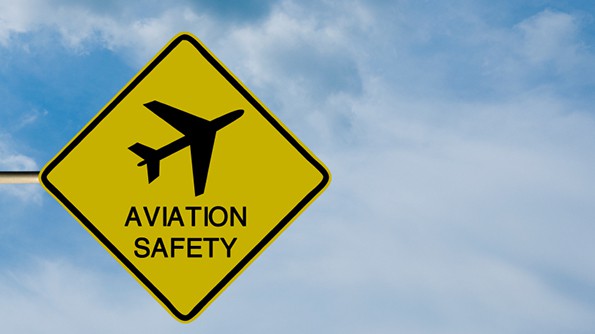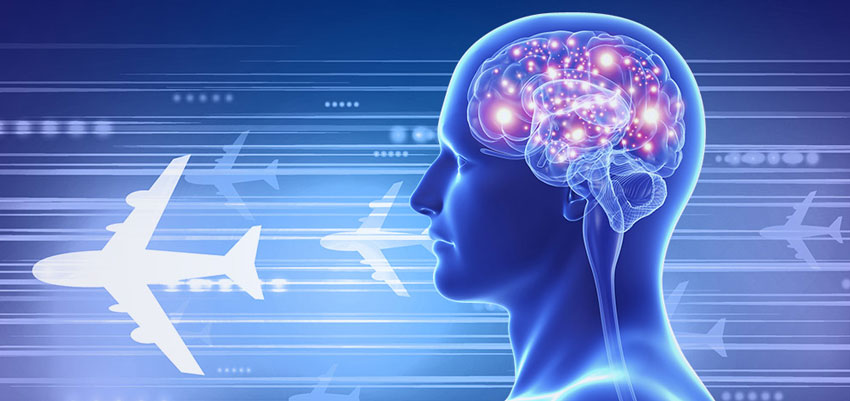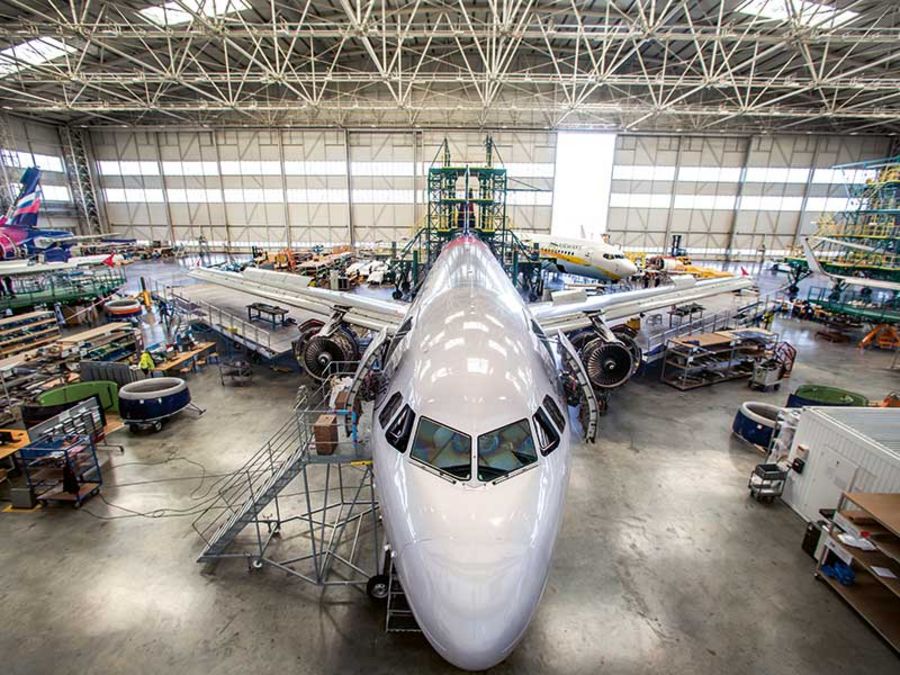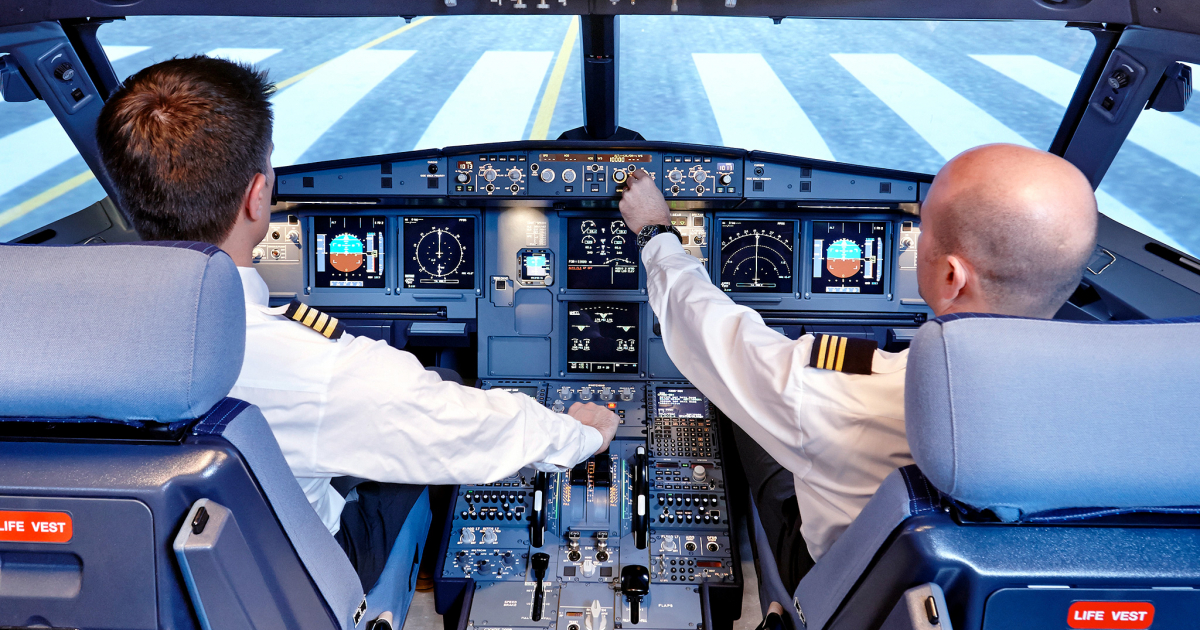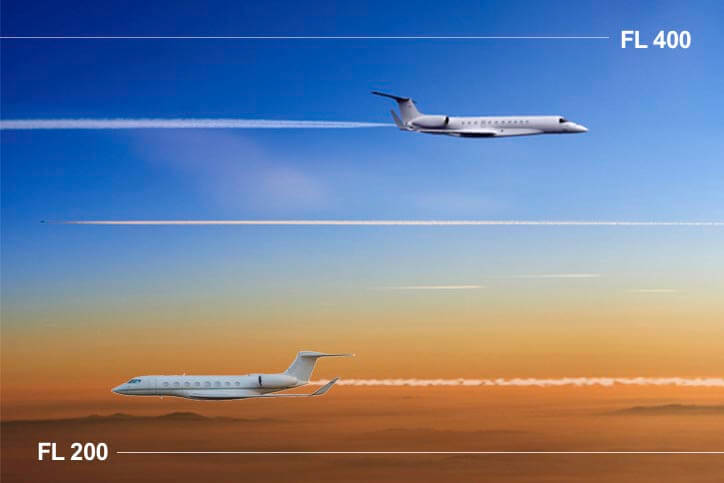Courses Offered

11+ Courses
Trending Course
The Safety Management System course focuses on Safety Risk Management and Safety Assurance. It aims to provide qualified Safety Management System (SMS) staff with a comprehensive application of operational safety management processes and practical examples to enhance the efficiency and effectiveness of safety management activities.
view moreThis Human Factors course has been developed for staff who need to demonstrate ongoing compliance with mandatory HF training. It is focused on the best organisation practices and is able to contribute to your successful HF training program. The course is highly participative and stimulates involvement and provides for powerful HF motivation and awareness. The aim is to update delegates regarding Human Factors. The course meets the full intent of regulatory requirements. The Training focuses on the importance of safety culture and awareness with the intention of providing a better understanding of the subject and to find workable methods to improve standards and compliance. The training will add to the delegates existing knowledge about the better understanding of the subject and to find workable methods to improve standards and compliance. By the end of this course, delegates will be able to explore the implications of error, the organisation’s safety culture, its procedures and safety policy and methods of communication.
view moreMaintenance of Air Transport aircraft and Large Aircraft must be carried out in Organisations approved under CAR-145/ Part-145 in accordance with the provisions in CAR-145/Part-145 issued by the Civil Aviation Authority of the country. CAR-145 specifies the requirements for the maintenance of aircraft and aeronautical products, parts, and appliances, and on the approval of organizations and personnel involved in these tasks. Likewise, these Organisations may perform maintenance on other types of aircrafts. This legislation is widely spread throughout the whole Word for the maintenance of aircraft of indian operators and aircraft’s owners that require a quality maintenance and acceptance of these aircrafts. CAR- 145 includes the technical, operative, and administrative requirements, that an Aircraft Maintenance Organisation must comply with, including those relevant for their certification as approved organisation. Its knowledge is essential for the professionals involved in the maintenance and operation of aircraft, of Commercial Air Transport, Commercial and Private Operations. To keep proficiency regarding legal criteria makes necessary to maintain updated knowledge on the subsequent amendments of CAR- 145. This training has been designed for that matter. At the completion of this training, it will be issued the corresponding certificate that accredits the entities that may require it an update of knowledge, a review of the amendments of the regulation, and therefore continuous training as it is required by CAR-145.
view moreThis course is focused and stimulating, very practical and participation is encouraged. It is ideally suited for all persons with pre-existing Part M Knowledge including Continuing Airworthiness Management Organisations as well as Leasing Company Personnel, Accountable Managers, Post Holders Maintenance Management Staff and Quality Personnel. This legislation is widely spread throughout the whole Word for the airworthiness management of aircraft of Indian operators and aircraft’s owners that require quality maintenance and acceptance of these aircrafts. CAR- M includes the technical, operative, and administrative requirements, that a Continuing Airworthiness Management Organisation must comply with, including those relevant to their certification as an approved organisation. Its knowledge is essential for the professionals involved in the airworthiness management and operation of aircraft, Commercial Air Transport, Commercial and Private Operations. To keep proficiency regarding legal criteria makes necessary to maintain updated knowledge on the subsequent amendments of CAR- M. This training has been designed for that matter. At the completion of this training, it will be issued the corresponding certificate that accredits the entities that may require it an update of knowledge, a review of the amendments of the regulation, and therefore continuous training as it is required by CAR-M.
view moreThe training will support the development of your MTOE and will appeal to all individual working in CAR-147 organization. It also focuses on the specific responsibilities of the CAR-147 Form 4 holder. Through attending this course the delegates will achieve an understanding of the related Quality Management Principles organize and develop an understanding of the need to submit an initial approval for Part 147 organization approval. In addition, to understand the requirements to construct a Maintenance Training Organisation Exposition (MTOE) together with the best practices for constructing and controlling training courses.
view moreThis course provides an opportunity for a recurrent exchange of experience and views regarding training best practice techniques. The course is extremely intensive highly practical and promotes best training practices. The course focuses on a review of both the implementation and management processes involved in Training as well as the need to develop personal training skills. The course is highly participative and stimulates involvement and provides for powerful motivation. To introduce the delegate to training skills and to provide the confidence which can be developed to deliver effective Training within your organizations. It aims to provide qualified individuals with comprehensive knowledge on how to manage and deliver the virtual classroom. The course addresses the core competencies required for an aviation-training instructor as per the ICAO Competency-Based Training Methodology (ICAO Doc 9941).
view moreThe audit requirements, procedures, and skills you need to know to get started as an internal auditor. This course prepares you to conduct consistent audits and drive continuous improvement within your organization. Learn about the audit process through a breakdown of its stages: the audit scope, objectives, follow-up and closing; and practice using techniques that deliver objective, measurable results. International audit requirements are covered in detail followed by a hands-on practical component.
view moreCRM training focuses on situational awareness, communication skills, teamwork, task allocation and decision making within a comprehensive framework of standard operating procedures (SOPs). Thus, training in CRM involves communicating basic knowledge of human factors concepts that relate to aviation and providing the tools necessary to apply these concepts operationally. It represents a new focus on crew-level (as opposed to individual-level) aspects of training and operations. In fact, CRM training should involve all people working in an airline and should be considered as a long-term development process that encompasses a varied set of training resources and media. These run from the traditional and passive to the highly interactive and experiential such as: self-study, classroom awareness training, modeling, classroom skills training, continual skills practice in both classroom and simulator, and practice or coaching during flying operations. As discussed in the briefing note CRM Schemes, CRM training programs should be broken into three phases: Awareness Practice and feedback Reinforcement
view moreThe RVSM Training Course is designed to help you become an expert on operations in Reduced Vertical Separation Minimums airspace (above FL 290). The course addresses the FAA/DGCA/EASA requirements for RVSM pilot training while also providing practical examples and advice on safe operating practices. The course content is divided into short, easy-to-complete study units that will make the most of your training time. Operations in RVSM airspace are a must for high-speed, high-performance aircraft. Upon completing this course, you will receive a graduation certificate to meet the FAA/GCAA/DGCA knowledge training requirements for operations in RVSM* airspace, while also enhancing your knowledge and safety mindset.
view moreEASA/DGCA/GCAA CAR -66 regulations define the conditions under which a maintenance engineer is authorized to release an aircraft into service after a maintenance operation. On the basis of the Maintenance Engineers License, together with a satisfactory demonstration of competency and knowledge of organizational procedures, the personal authorization document is issued by an approved CAR-145 organization. The conditions required are defined by minimum education requirements (school and college certificates, language competency, etc) as well as type rating qualifications for the relevant aircraft or particular tasks. This one-day course provides delegates with an insight into the requirements of the regulation. Whilst the course is aimed specifically at, stakeholders as well as those with limited CAR 66 knowledge, who nevertheless require a fundamental understanding of their obligations and responsibilities. On completion, delegates shall understand and be able to explain the basic license structure together with the various categories A, B1, B2, B3 & C, and how organizations can ensure that they understand and manage the process in the most effective way.
view moreEASA/DGCA/GCAA CAR -66 regulations define the conditions under which a maintenance engineer is authorized to release an aircraft into service after a maintenance operation. On the basis of the Maintenance Engineers License, together with a satisfactory demonstration of competency and knowledge of organizational procedures, the personal authorization document is issued by an approved CAR-145 organization. The conditions required are defined by minimum education requirements (school and college certificates, language competency, etc) as well as type rating qualifications for the relevant aircraft or particular tasks. This one-day course provides delegates with an insight into the requirements of the regulation. Whilst the course is aimed specifically at, stakeholders as well as those with limited CAR 66 knowledge, who nevertheless require a fundamental understanding of their obligations and responsibilities. On completion, delegates shall understand and be able to explain the basic license structure together with the various categories A, B1, B2, B3 & C, and how organizations can ensure that they understand and manage the process in the most effective way.
Free
view moreThe RVSM Training Course is designed to help you become an expert on operations in Reduced Vertical Separation Minimums airspace (above FL 290). The course addresses the FAA/DGCA/EASA requirements for RVSM pilot training while also providing practical examples and advice on safe operating practices. The course content is divided into short, easy-to-complete study units that will make the most of your training time. Operations in RVSM airspace are a must for high-speed, high-performance aircraft. Upon completing this course, you will receive a graduation certificate to meet the FAA/GCAA/DGCA knowledge training requirements for operations in RVSM* airspace, while also enhancing your knowledge and safety mindset.
Free
view moreCRM training focuses on situational awareness, communication skills, teamwork, task allocation and decision making within a comprehensive framework of standard operating procedures (SOPs). Thus, training in CRM involves communicating basic knowledge of human factors concepts that relate to aviation and providing the tools necessary to apply these concepts operationally. It represents a new focus on crew-level (as opposed to individual-level) aspects of training and operations. In fact, CRM training should involve all people working in an airline and should be considered as a long-term development process that encompasses a varied set of training resources and media. These run from the traditional and passive to the highly interactive and experiential such as: self-study, classroom awareness training, modeling, classroom skills training, continual skills practice in both classroom and simulator, and practice or coaching during flying operations. As discussed in the briefing note CRM Schemes, CRM training programs should be broken into three phases: Awareness Practice and feedback Reinforcement
Free
view moreThe audit requirements, procedures, and skills you need to know to get started as an internal auditor. This course prepares you to conduct consistent audits and drive continuous improvement within your organization. Learn about the audit process through a breakdown of its stages: the audit scope, objectives, follow-up and closing; and practice using techniques that deliver objective, measurable results. International audit requirements are covered in detail followed by a hands-on practical component.
Free
view moreEASA/DGCA/GCAA CAR -66 regulations define the conditions under which a maintenance engineer is authorized to release an aircraft into service after a maintenance operation. On the basis of the Maintenance Engineers License, together with a satisfactory demonstration of competency and knowledge of organizational procedures, the personal authorization document is issued by an approved CAR-145 organization. The conditions required are defined by minimum education requirements (school and college certificates, language competency, etc) as well as type rating qualifications for the relevant aircraft or particular tasks. This one-day course provides delegates with an insight into the requirements of the regulation. Whilst the course is aimed specifically at, stakeholders as well as those with limited CAR 66 knowledge, who nevertheless require a fundamental understanding of their obligations and responsibilities. On completion, delegates shall understand and be able to explain the basic license structure together with the various categories A, B1, B2, B3 & C, and how organizations can ensure that they understand and manage the process in the most effective way.
Free
view moreThe RVSM Training Course is designed to help you become an expert on operations in Reduced Vertical Separation Minimums airspace (above FL 290). The course addresses the FAA/DGCA/EASA requirements for RVSM pilot training while also providing practical examples and advice on safe operating practices. The course content is divided into short, easy-to-complete study units that will make the most of your training time. Operations in RVSM airspace are a must for high-speed, high-performance aircraft. Upon completing this course, you will receive a graduation certificate to meet the FAA/GCAA/DGCA knowledge training requirements for operations in RVSM* airspace, while also enhancing your knowledge and safety mindset.
Free
view moreCRM training focuses on situational awareness, communication skills, teamwork, task allocation and decision making within a comprehensive framework of standard operating procedures (SOPs). Thus, training in CRM involves communicating basic knowledge of human factors concepts that relate to aviation and providing the tools necessary to apply these concepts operationally. It represents a new focus on crew-level (as opposed to individual-level) aspects of training and operations. In fact, CRM training should involve all people working in an airline and should be considered as a long-term development process that encompasses a varied set of training resources and media. These run from the traditional and passive to the highly interactive and experiential such as: self-study, classroom awareness training, modeling, classroom skills training, continual skills practice in both classroom and simulator, and practice or coaching during flying operations. As discussed in the briefing note CRM Schemes, CRM training programs should be broken into three phases: Awareness Practice and feedback Reinforcement
Free
view moreThe audit requirements, procedures, and skills you need to know to get started as an internal auditor. This course prepares you to conduct consistent audits and drive continuous improvement within your organization. Learn about the audit process through a breakdown of its stages: the audit scope, objectives, follow-up and closing; and practice using techniques that deliver objective, measurable results. International audit requirements are covered in detail followed by a hands-on practical component.
Free
view moreThis course provides an opportunity for a recurrent exchange of experience and views regarding training best practice techniques. The course is extremely intensive highly practical and promotes best training practices. The course focuses on a review of both the implementation and management processes involved in Training as well as the need to develop personal training skills. The course is highly participative and stimulates involvement and provides for powerful motivation. To introduce the delegate to training skills and to provide the confidence which can be developed to deliver effective Training within your organizations. It aims to provide qualified individuals with comprehensive knowledge on how to manage and deliver the virtual classroom. The course addresses the core competencies required for an aviation-training instructor as per the ICAO Competency-Based Training Methodology (ICAO Doc 9941).
₹ 10000 / ₹ 8000
view more
The training will support the development of your MTOE and will appeal to all individual working in CAR-147 organization. It also focuses on the specific responsibilities of the CAR-147 Form 4 holder. Through attending this course the delegates will achieve an understanding of the related Quality Management Principles organize and develop an understanding of the need to submit an initial approval for Part 147 organization approval. In addition, to understand the requirements to construct a Maintenance Training Organisation Exposition (MTOE) together with the best practices for constructing and controlling training courses.
₹ 10000 / ₹ 8000
view more
This course is focused and stimulating, very practical and participation is encouraged. It is ideally suited for all persons with pre-existing Part M Knowledge including Continuing Airworthiness Management Organisations as well as Leasing Company Personnel, Accountable Managers, Post Holders Maintenance Management Staff and Quality Personnel. This legislation is widely spread throughout the whole Word for the airworthiness management of aircraft of Indian operators and aircraft’s owners that require quality maintenance and acceptance of these aircrafts. CAR- M includes the technical, operative, and administrative requirements, that a Continuing Airworthiness Management Organisation must comply with, including those relevant to their certification as an approved organisation. Its knowledge is essential for the professionals involved in the airworthiness management and operation of aircraft, Commercial Air Transport, Commercial and Private Operations. To keep proficiency regarding legal criteria makes necessary to maintain updated knowledge on the subsequent amendments of CAR- M. This training has been designed for that matter. At the completion of this training, it will be issued the corresponding certificate that accredits the entities that may require it an update of knowledge, a review of the amendments of the regulation, and therefore continuous training as it is required by CAR-M.
₹ 10000 / ₹ 8000
view more
Maintenance of Air Transport aircraft and Large Aircraft must be carried out in Organisations approved under CAR-145/ Part-145 in accordance with the provisions in CAR-145/Part-145 issued by the Civil Aviation Authority of the country. CAR-145 specifies the requirements for the maintenance of aircraft and aeronautical products, parts, and appliances, and on the approval of organizations and personnel involved in these tasks. Likewise, these Organisations may perform maintenance on other types of aircrafts. This legislation is widely spread throughout the whole Word for the maintenance of aircraft of indian operators and aircraft’s owners that require a quality maintenance and acceptance of these aircrafts. CAR- 145 includes the technical, operative, and administrative requirements, that an Aircraft Maintenance Organisation must comply with, including those relevant for their certification as approved organisation. Its knowledge is essential for the professionals involved in the maintenance and operation of aircraft, of Commercial Air Transport, Commercial and Private Operations. To keep proficiency regarding legal criteria makes necessary to maintain updated knowledge on the subsequent amendments of CAR- 145. This training has been designed for that matter. At the completion of this training, it will be issued the corresponding certificate that accredits the entities that may require it an update of knowledge, a review of the amendments of the regulation, and therefore continuous training as it is required by CAR-145.
₹ 10000 / ₹ 8000
view more
This Human Factors course has been developed for staff who need to demonstrate ongoing compliance with mandatory HF training. It is focused on the best organisation practices and is able to contribute to your successful HF training program. The course is highly participative and stimulates involvement and provides for powerful HF motivation and awareness. The aim is to update delegates regarding Human Factors. The course meets the full intent of regulatory requirements. The Training focuses on the importance of safety culture and awareness with the intention of providing a better understanding of the subject and to find workable methods to improve standards and compliance. The training will add to the delegates existing knowledge about the better understanding of the subject and to find workable methods to improve standards and compliance. By the end of this course, delegates will be able to explore the implications of error, the organisation’s safety culture, its procedures and safety policy and methods of communication.
₹ 10000 / ₹ 8000
view more
The Safety Management System course focuses on Safety Risk Management and Safety Assurance. It aims to provide qualified Safety Management System (SMS) staff with a comprehensive application of operational safety management processes and practical examples to enhance the efficiency and effectiveness of safety management activities.


